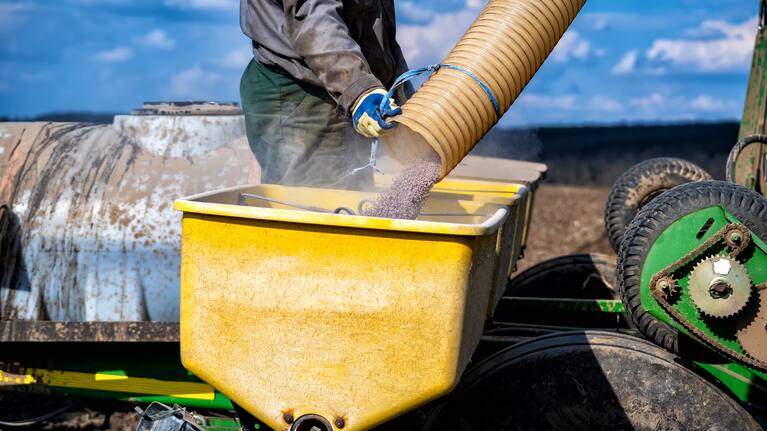The Climate Change Commission ignored its own advice, which could have cut agricultural climate emissions by a third or more, Greenpeace claims.
The environmental NGO claims it unearthed a "hidden" report by the Commission — Eliminating synthetic nitrogen fertiliser on dairy farms — which showed New Zealand could allegedly achieve signficant reductions in greenhouse gas emissions if it eliminated synthetic nitrogen fertiliser.
Greenpeace claims the report did not make it into the Commission's recommendations for a low emissions future, which are currently being considered by the Government.
Christine Rose, Greenpeace's lead agriculture campaigner, questions who the Commission works for — the public or Fonterra.
"My question is why did the Climate Commission ignore its own internal report on the benefits of cutting out synthetic nitrogen fertiliser?
"Why did it prioritise the short term maximising of milk production ahead of cutting greenhouse emissions — the exact opposite of what it was supposed to do."
Greenpeace says the report quoted a 2020 study by Journeaux et al, who found potential emissions reductions of between 10 to 31 per cent from eliminating synthetic nitrogen, depending on the region.
The report also reflected on price premiums attached to organic dairy products , which could offset reduced production volumes from reduced herd sizes from less synthetic fertiliser use.

The report said: "There seems to be robust evidence to support the intuitive notion that eliminating synthetic nitrogen use would reduce agricultural emissions. Eliminating synthetic fertiliser could also have significant co-benefits."
However, in its final recommendations to Parliament, Greenpeace claims the Commission backed away from its own internal report and did not advocate for phasing out synthetic nitrogen fertiliser.
The NGO claims the Commission went so far as to undermine the evidence reported on in its own internal paper.
The Commission said: "We reviewed the limited evidence available on the potential emissions reductions impacts of phasing out synthetic nitrogen fertiliser on dairy farms," and recommended the Government work on pricing mechanisms.
The Commission’s final report noted its consideration of input controls, such as restrictions on synthetic nitrogen fertiliser, and its doubts about on-farm methods to reduce climate pollution, but ultimately rejected fertiliser controls in favour of unproven on-farm methods, Greenpeace says.
Rose felt the Commission had buried its head in the sand as a result.
"The Commission has prioritised short-term milk production maximisation ahead of a stable climate. This is the exact opposite of what it was supposed to do. We hope the Government has more sense.
"The climate crisis is already here. We’re already feeling the effects of more frequent and intense droughts, storms and floods. If we’re to stem the flow of climate pollution, Ardern’s Government must cut synthetic nitrogen fertiliser, lower cow stocking rates and support farmers to shift to regenerative organic farming."
Greenpeace CEO 'astonished'
Russell Norman, Greenpeace Aotearoa's executive director, told Breakfast he was "astonished" the contents of the synthetic nitrogen fertiliser report had not made it into the Commission's recommendations to Parliament.
He said there was nothing to stop the Commission telling the truth, so it was concerned the amount of evidence around the benefits of reducing or eliminating the use of synthetic fertilisers had moved from being termed "robust" to "limited".
Norman said it was hard to understand what had happened in the process from the Commission's synthetic nitrogen report to its advice to the Government.
Mark Julian, Pāmu's dairy general manager, says its eight organic dairy farms saw about a 75 per cent drop in the amount of nitrogen. (Source: Other)
He said a "very important tool" had dropped out of the process.
Norman denied claims Greenpeace was "anti-dairy" and said its focus was around a sustainable transition in the way food is produced.
He said it was a "win, win, win" scenario if this was changed.
Organic farming and nitrogen
Mark Julian, Pāmu's (Landcorp) dairy general manager, told Breakfast its eight organic dairy farms had seen about a 75 per cent drop in the amount of nitrogen.
He said it largely uses chicken manure as a replacement for nitrogen when it needs to boost grasses in part of the season.
Pāmu also has 35 conventional dairy farms and Julian said it had cut synthetic nitrogen use by about 25 per cent on 10 of its South Island ones.
He said farmers were already thinking about nitrates and what difference cutting their use could make.

What are synthetic fertilisers?
Nitrogen is responsible for making plants grow.
Naturally, plants get nitrogen from the atmosphere, which is sucked down into the soil.
Synthetic nitrogen, on the other hand, is produced by chemical fertiliser companies. It is most commonly used in the dairy industry.
Put simply, fertilisers containing synthetic nitrogen are used to grow the grass which feeds cows.
However, synthetic nitrogen fertiliser is not good for the environment.
When it is used, it directly causes nitrous oxide emissions. This is the gas which is 298 times worse for the climate than carbon dioxide.
Synthetic fertilisers are used to grow the grass which feeds cows. (Source: Other)
This is due to the fact not all of the nitrogen from synthetic fertilisers used on the soil is taken up by the plants.
It travels underground, polluting aquifers and rivers, leading to health concerns and the degradation of freshwater.
The use of these synthetic fertilisers has allowed for the intensification of farming.
More grass means more food, which means more cows, along with their urine and burps.
Essentially, more nitrogen pollution getting into New Zealand's waterways and more methane and nitrous oxide being released into the atmosphere.




















SHARE ME